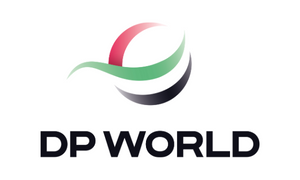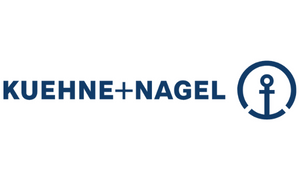2023 Conference Programme
REGAINING CAPACITY, STABILITY AND CONFIDENCE IN NORTH AMERICA’S SUPPLY CHAIN
Automotive Logistics and Supply Chain Global will explore how policies across North America are impacting supply chain operations, with stakeholders and experts from government discussing incentives, changes and opportunities for automotive logistics. The conference will also explore how the industry can best build the most diverse and inclusive teams, especially as mixed cultures and experiences are often critical to success in today’s complex, and ever-changing supply chains.
07.30 – 14.00 EDT
Automotive Logistics & Supply Chain Global Golf Day in partnership with DP World
Tee off your conference experience in style, joining colleagues and industry peers for a golf morning.
The Golf Day is now full and a waiting list is in operation, all confirmed participants will have received joining instructions for this activity. Contact ultimamedia@eventbooking.uk.com for further information.
In partnership with

18.00 – 21.00 EDT
Welcome drinks reception hosted by Kuehne+Nagel at TRIA, The Henry Hotel, Dearborn, MI
Join us on the eve of North America’s premier gathering of automotive logistics and supply chain leaders and experts for a relaxed and engaging evening of networking and socialising at the TRIA restaurant, conveniently located within The Henry Hotel. Catch up with colleagues and old friends, make new connections and kick-start the discussions on the key trends, challenges and opportunities driving the industry forward.
Dress code: Business casual
Hosted by

08:00 EDT
09:00 EDT
Conference open for registration, networking and refreshments
Session 1: Introduction and welcome to Automotive Logistics and Supply Chain Global
Get ready for a journey through the North American supply chain and learn more about what we will aim to achieve over the course of the conference and beyond.
Host: Christopher Ludwig, Editor-in-Chief, Automotive Logistics & Ultima Media
09:15 EDT
Session 2: Regaining capacity, stability and confidence in North America’s supply chain
Hear lessons learned following years of supply chain disruption and how manufacturers and providers need to address new capacity and network challenges with long-term planning and investment.
SPEAKERS

Renee Wawrzynski, Executive Director Global Logistics, General Motors

Achim Glass, SVP, Head of Global Business Development Automotive + New Mobility, Kuehne + Nagel Management

Mike Valentine, Chief Commercial Officer USA/Mexico, DP World

Chris Styles, Vice President, Supply Chain Management, North America, Nissan
Moderator: Christopher Ludwig, Editor-in-Chief, Automotive Logistics & Ultima Media
After years of material and capacity shortages, automotive manufacturers and their providers have made progress in stabilising much of the supply chain, reducing cost and creating more predictability. However, the industry continues to face challenges, from extended vehicle delivery lead times, capacity issues in rail and ro-ro, to changing networks and requirements as electric vehicle and battery production ramps up. How should supply chain stakeholders approach these issues?
In this session, major manufacturers and logistics providers will share insight into the innovations and learnings of supply chain disruption, including partnerships, technology and investments. They will also outline how the industry needs to shift from short-term firefighting to partnerships based on long-term planning, sharing insight on the investments, technology and partnerships needed to ensure the North American automotive supply chain can compete in efficiency, quality, customer satisfaction and sustainability.
Join this session to learn more on:
10:15 EDT
Networking, Meetings and Exhibition
Grab a bite to eat and take a walk around the exhibition hall to make new connections or future business partners and to catch up with colleagues and friends.
Grab your badge and a bite to eat, and then start making new connections and catching up with colleagues and friends
11:15 EDT
Session 3 - Stream 1: Finished Vehicle Logistics – keeping pace with change
With vehicle logistics capacity still constrained, hear how OEMs and LSPs are adapting networks and business models.
SPEAKERS

Nick Thompson, Head of Vehicle Logistics, Stellantis North America

Sean Baltazar, Senior Vice President of Sales, RPM

Paul Roosen, Vehicle Logistics Planning Manager, North American Vehicle Logistics, Ford Motor Company

Oskar Orstadius, Chief Sales Officer, Höegh Autoliners

Sarah Amico, Executive Chairperson, Jack Cooper
Moderator: Christopher Ludwig, Editor-in-Chief, Automotive Logistics & Ultima Media
Even as network capacity and equipment constraints across road, rail and ocean impact vehicle distribution across North
America, vehicle logistics teams and providers must adapt to constant change, including production and sourcing locations, new priorities and business models. OEMs must manage changing import and export trade lanes, design and optimise new intercontinental flows across the US, Mexico and Canada, accommodate increasing volumes of heavier and larger electric vehicles, all while pursuing ever-greener solutions.
In this session, hear how carmakers and logistics providers are embracing the paradigm shift required to maintain efficiency and high-level performance across the vehicle logistics network as the industry rapidly transforms.
Session 3 - Stream 2: Go with the (new) flow – transforming the supply chain footprint
Understand how logistics and supply chain leaders are preparing for rising regionalisation of production and sourcing across the US, Canada and Mexico.
SPEAKERS

Sarah Pero, Senior Buyer, Logistics, Transportation & Customs Services, Brose North America

Frank Bateman, VP, Supply Chain Operations, Ryder

Jim Mancini, VP, North American Surface Transportation, C.H. Robinson

Greg Megerian, Director of Global Logistics Procurement, HARMAN International
Moderator: Richard Logan, Senior Content Producer, Automotive Logistics & Ultima Media
Together with purchasing and engineering teams, logistics managers and their service providers are helping to shift to more regional and local supply chains across North America. Understand the government policies, including incentives like the IRA, and risk mitigation strategies driving the nearshoring trend, learn what the future supply chain footprint and network will look like as new value chains, new manufacturing and logistics hubs and trade flows develop across the US, Mexico and Canada.
12:15 EDT
Session 4 - Stream 1: Essential intelligence – North American and global production and sales outlook
The latest forecasts for North American and global vehicle production, and the trends impacting the supply chain.
SPEAKERS

Joe Langley, Associate Director, North American Light Vehicle Production, S&P Global
Moderator: Christopher Ludwig, Editor-in-Chief, Automotive Logistics & Ultima Media
Be informed with very latest projections for North American
and global vehicle production and sales volumes from market leading industry analysts and forecasters.
Hear expert analysis on the economic, geopolitical and social factors influencing market behaviour and understand how fast changing product portfolios, nearshoring strategies and new value chains including electric vehicles and batteries are reshaping automotive supply chains and creating new challenges and opportunities for supply chain organisations and logistics partners.
Session 4 - Stream 2: Ideas Lab - Supply chain stability in volatile times: Warehousing data instead of parts
Years of ongoing disruption is putting greater emphasis on supply chain resilience among automotive manufacturers. But how can the industry maintain greater stability across suppliers and sub-suppliers without drastically reducing vehicle options or spending a fortune on higher inventory, dual sourcing and manufacturing?
SPEAKERS

Oleg Gusikin, Supply Chain Analytics Senior Manager, Ford Motor Company

Maxim Serov, Director, Supply Chain Management NAO , Benteler

David Salerno, Director 4flow management, 4flow
Moderator: Richard Logan, Senior Content Producer, Automotive Logistics & Ultima Media
OEMs such as Ford are making huge efforts to harness the power of data and analytics to identify changing demand and potential disruptions long before they hit the assembly line or impact customers. In this workshop, interact with the company’s leaders in supply chain analytics and come ready to share and discuss key processes in integrating data across purchasing, logistics and supply chains, and the potential for analytics, machine learning and AI to help build supply chain resilience.
Join this workshop to:- Understand data management and integration across the supply chain
- Use software and data models to separate supply chain risk from ‘noise’
- Brainstorm how ML and AI can and should support digital production control and logistic
13:00 EDT
Lunch, Networking and Exhibitions
Hosted by

14:15 EDT
Session 5 - Stream 1: Staying lean and still growing: how to deliver just-in-time and stay resilient
How manufacturers are working with LSPs to maintain stable supply flows whilst still ensuring high efficiency and on-time delivery, including through better visibility, automation and collaboration.
SPEAKERS

Oliver Bilstein, Vice-President of Logistics and Production Control BMW Manufacturing

Daryl Knight, Chief Commercial Officer ProTrans

Alan Votaw, Senior Vice President for Sales, On-Demand, Ascent

Ana Lucia Ochoa, Global Director Supply Chain Management, Metal Forming Division, American Axle Manufacturing
Moderator: Christopher Ludwig, Editor-in-Chief, Automotive Logistics & Ultima Media
As chip supply and sales recover, and investment in North American manufacturing grows, OEMs are ramping up volume, putting pressure on suppliers and providers to keep pace. Companies, meanwhile, are keen to apply lessons learned from recent crises, including using regional suppliers and being tactical with inventory. However, in the face of high costs and interest rates, and logistics capacity and shortages in some areas, it is also critical to run lean, efficient and synchronised supply chains, end to end. How can the automotive industry strike the balance between just-in-time and resiliency?
In this session, manufacturers and their partners discuss how they are working together to improve supply and logistics stability across production, service and distribution in today’s new normal, including strategic order-and-inventory management, improved visibility and through increased automation.
Session 5 - Breakout 2: Essential intelligence – Automotive Logistics North America: Market analysis and best practices for controlling logistics costs
Gain insight on the market size and forecast for North American automotive logistics and the best practices to negotiate best-in-class shipping rates with major carriers in the region and beyond.
SPEAKERS

Daniel Harrison , Automotive Analyst, Automotive Logistics & Ultima Media

Mike Erickson , Chief Executive Officer, AFMS
Moderator: Richard Logan, Senior Content Producer, Automotive Logistics & Ultima Media
Get a deeper understanding of the North American automotive logistics market with Automotive Logistics’ exclusive in-depth business intelligence on the current and future market share of the region’s leading logistics providers for inbound, outbound, service parts and premium freight, along with expert analysis of the major industry trends and challenges shaping the services and market outlook for automotive logistics transportation across rail, ocean, road and air.
In this session you’ll also hear from freight pricing specialists and learn about the successful strategies and techniques to improve contract negotiations and reduce supply chain shipping costs.
15:15 EDT
Networking, Meetings and Exhibition
Grab a bite to eat and take a walk around the exhibition hall to make new connections or future business partners and to catch up with colleagues and friends.
15:45 EDT
Session 6 - Stream 1: Fully charged value chains
What the rise of battery and EV supply chains means for inbound, outbound and service parts logistics.
SPEAKERS

David A. Leich, Executive Director, Global Supply Chain, General Motors

Antonio Fondevilla, Global Automotive Vertical Head, Maersk

Vijaya Neela, President & CEO, aThingz

Peter Coratola, Jr., Founder and CEO, Ease Logistics Services

Kiki Nice, Manager Supply Chain, Daimler Trucks
Moderator: Christopher Ludwig, Editor-in-Chief, Automotive Logistics & Ultima Media
Join this session to understand the logistics competencies, investments and opportunities developing as the electric vehicle and battery manufacturing and distribution value chain scales across North America, from critical raw material sourcing, hazardous material handling, charging infrastructure, vehicle transport, battery replacements and vehicle servicing to end of life recycling.
Session 6 - Stream 2: Innovation Power Hour
Hear short pitches on the latest innovation and technology for automotive logistics.
SPEAKERS

Agustin Sustaita, Chief Commercial Officer, D-Troy Logistics

Roman Noack, Chief Executive Officer & Co-Founder, HELROM

Christine Krathwohl, vice-president, global business development, FreightVerify
Moderator: Richard Logan, Senior Content Producer, Automotive Logistics & Ultima Media
Hear from the newest and most exciting start-ups and established players revolutionizing the automotive logistics and supply chain sector. Unearth your next business partner and identify the game-changing solutions that will give your supply chain and logistics operations the leading edge.
16:45 EDT
Session 7: Making an impact – accelerating diversity, equality and inclusivity in automotive supply chains
A focus on how the automotive logistics can improve and champion gender equality and diversity across operations and management.
SPEAKERS
Terri Stevenson, Director of Materials, Magna Seating – North America

Amy Broglin-Peterson, Adjunct Faculty, Department of Supply Chain Management, Michigan State University

Amy Paulsen, Principle, AMP Supply Chain Consulting LLC

Jessica Hanson, Vice-President Logistics, Bosch in North America
Moderator: Christopher Ludwig, Editor-in-Chief, Automotive Logistics & Ultima Media
Addressing diversity, equality and inclusivity has fast become a fundamental pillar for companies of all sizes and across all sectors. As a truly global industry, automotive manufacturing and its supply chains have the opportunity to lead this change and positively impact millions of lives around the world. This shift can also deliver improvements in supply chain performance, not least as the sector requires new talents and skillsets, new thinking and leadership for the transition to sustainable, connected and electrified mobility solutions.
In this session, hear how individual logistics leaders and forward-thinking automotive manufacturers and providers are
taking meaningful action to raise awareness within their own organisations and across their value chain, and develop and
implement best practises to create welcoming environments where all individuals can be celebrated and supported to
achieve success.
18:00 - 21:00 EDT
Automotive Logistics and Supply Chain Global gala reception, hosted by Ryder at The Henry Ford Museum
The conversations and networking continue as you’re transported to the award-winning Henry Ford Museum for an evening combining glamour, history, innovation, fine dining and first-class company. Enjoy an incredible evening with your fellow delegates, surrounded by an amazing collection of the most iconic automobiles ever produced, and be inspired to make your own mark in automotive history.
Hosted by
Dress code – business casual
08:30 EDT
09:00 EDT
Conference open for registration, networking and refreshments
Grab your badge and a bite to eat, and then start making new connections and catching up with colleagues and friend.
Session 8: Wake-up call – prioritising cyber security for the supply chain
How manufacturers can protect their increasingly digital automotive supply chains from attacks on security, data and operations.
SPEAKERS
Brian Joyner, VP and Division Chief Information Officer, Ryder

Brian Yoshino, Cybersecurity Advisor, Cybersecurity and Infrastructure Security Agency

Wei Chen Lin, Cybersecurity Advisor, Cybersecurity and Infrastructure Security Agency

Gerado de la Torre Garcia, Senior Director & Advisor Supply Chain Management, Nissan North America
Moderator: Richard Logan, Senior Content Producer, Automotive Logistics & Ultima Media
The rapid digital transformation of automotive products, supply chain tools and production processes are paving the way for a connected and efficient future but as technology and services in vehicles increases, automotive manufacturers are facing an increasingly complex software supply chain along with new attack vectors, increasing their exposure to cyber security breaches that can threaten the entire enterprise.
In this session, leading experts address the need to prioritise cyber security and invest in preventative measures to eliminate threats and vulnerabilities for supply chain as the digital ecosystem continues to expand and evolve.
10:00 EDT
Session 9: Building a supply chain metaverse – connecting physical and digital worlds
Learn more about how manufacturers and logistics providers are accelerating digital transformation across operations and setting a path to even more connected, immersive digital twins.
SPEAKERS

Ryan Rusnak, CTO & Co-founder, Airspace

Adrian Jennings, Chief Product Officer, Cognosos

Patrick Bauer, Vice-President of Supply Chain, IAC
Moderator: Christopher Ludwig, Editor-in-Chief, Automotive Logistics & Ultima Media
Following years of production disruptions and delivery delays, automotive manufacturers and service providers are accelerating the path to more connected, transparent and predictive supply chains. In this session our panel of supply chain and technology experts explore the technology and process to digitalise the supply chain, from real-time tracking and control towers, network optimisation to artificial intelligence, sharing real-world case studies and discussing the potential of the metaverse for supply chain.
10:45 EDT
Networking, Meetings and Exhibition
Grab a bite to eat and take a walk around the exhibition hall to make new connections or future business partners and to catch up with colleagues and friends.
11:15 EDT
Session 10 - Stream 1: Bridging the gap between network planning and operational execution in production and service parts logistics
Optimising network and warehouse efficiency through new technology and dynamic planning is increasingly a competitive advantage for inbound logistics and service parts distribution.
SPEAKERS
Greg Toornman, Global Vice-President of Materials, Logistics, and Demand Planning, AGCO Corporation

Michael Schad, General Manager, Toyota and Lexus Service Parts Fulfillment, Toyota North America

Adam Jones, Director of Business Development and sector Strategies, Unipart Group

Salim Shaikh, Corporate Vice President, Automotive Industry Strategy, Blue Yonder
Moderator: Richard Logan, Senior Content Producer, Automotive Logistics & Ultima Media
In today’s VUCA landscape, having the most optimal logistics network can not only mitigate disruption, but be a competitive advantage, from keeping production launches on track to helping dealers and distributors better serve customers. The gap between logistics network planning and operational execution is closing with new technology and strategies, including scenario simulation technology, demand forecasting and logistics automation. Logistics planners for production and service parts increasingly have more data, and in real time, for more accurate supply chain flows, and increasing capabilities for dynamic adjustments to meet strategic needs, including investing in more flexible delivery options, changing inventory levels and improving warehouse efficiency.
In this session, understand how supply chain leaders and expert planners are using logistics networks as a competitive advantage, integrating planning and operational functions and improving the systems and processes that allow them to better align their supply chains to near-constant changing demands and scenarios.
Session 10 - Stream 2: Getting the freight network back on track – improving multimodal network performance
Identifying opportunities for performance improvement and multimodal network optimisation.
SPEAKERS
Martin Oberman, Chairman, Surface Transportation Board

Nick Little , Director Railway Education at the Center for Railway Research & Education, Michigan State University
Moderator: Christopher Ludwig, Editor-in-Chief, Automotive Logistics & Ultima Media
As critical component supply constraints ease and production volumes rise, transport capacity and labour constraints are hampering the automotive industry’s ability to deliver parts and finished vehicles, particularly across rail, intermodal and shipping. The misalignment and scarcity of railcar equipment, lack of ro-ro vessels and uneven trade flows, along with a shortage of drivers, compound operators and rail workers are not only leading manufacturers to cut production volumes, but forcing logistics and supply chain leaders to use less sustainable modes of transport, hindering progress towards a net zero carbon supply chain and logistics network.
In this session we delve deep into the freight networks’ performance levels, identifying opportunities for improvement and optimisation despite the existing constraints, and learn how manufacturers, logistics providers and federal agencies, such as the Surface Transportation Board, are working together to improve efficiencies, reduce bottlenecks and time-to-market, and enable multimodal networks to operate reliably and effectively.
12:15 EDT
Session 11: Taking control of parts and packaging: lean, green and seen
Hear how having a plan for every part and efficient packaging network design can significantly improve network utilisation and logistics costs.
SPEAKERS

Daniel Pace, Transportation Unit Leader, Honda Development & Manufacturing of America

Laurie Wimmer, Advanced Logistics Manager, Magna Seating

Ross Clarke, Director of Business Development and Sector Strategies, Carter Logistics

Srini Paruchuri ,Vice President, Customer Strategy and Solutions, Agillence
Moderator: Richard Logan, Senior Content Producer, Automotive Logistics & Ultima Media
Near-constant crisis and increased cases of supply chain
disruptions and issues requiring urgent attention can leave little capacity for focus on process excellence and network optimisation, but these are fundamental practices that underpin cost control, network efficiency, and waste reduction, particularly across parts movement and packaging.
In this session, logistics and packaging specialists will discuss how innovations in network engineering and design, as well as material choices are crucial to improving fill rates, reducing CO2 footprints, and how enhanced asset-tracking and visibility can maximise capacity and ease bottlenecks.
13:00 EDT
Lunch, Networking and Exhibitions
Hosted by

14:00 EDT
Session 12: Driving towards a cleaner future
Insight on the short-term measures and long-term strategies that manufacturers and logistics providers are pursuing on the path to decarbonising automotive supply chains.
SPEAKERS

Bridget Grewal, Director, Packaging Continuous Improvement, Magna International

Matt Marshall, Manager of Supply Chain Sustainability, Toyota North America

Bill Combs, Vice President of Sustainability, Penske
Moderator: Richard Logan, Senior Content Producer, Automotive Logistics & Ultima Media
Whilst automotive product portfolios transform, becoming more environmentally friendly and eventually carbon neutral, that path to net zero for transport and logistics will take time, as there is no immediate path to scaling up zero emission road, truck, rail or air freight. If manufacturers and logistics providers don’t work together closely, new supply chain and manufacturing requirements, including for EV and battery production, could lead to increases in transport emissions, material and packaging waste. That is why manufacturers are so focused on implementing long-term strategies to achieve more sustainable logistics and packaging.
In this session, understand how carmarkers, suppliers and key stakeholders are collaborating to develop best practises for packaging materials and waste reduction, emission reporting and target setting, advance recycling capabilities and develop closed loop systems throughout the supply chain, from logistics and transport to plants to dealerships.
14:45 EDT
Session 13: Leading today, building for tomorrow
Logistics leaders share their lessons learned on how to lead a more resilient, secure and still flexible supply chain, and build teams and careers fit for the future in North America.
SPEAKERS

Anna Markett, Senior Vice-President, Supply Chain, Stellantis North America

Michael Schad, General Manager, Toyota and Lexus Service Parts Fulfillment, Toyota North America

Maria Hernandez, VP, Regional Head of Human Resources, Americas, Hellmann Worldwide Logistics

Eva Ames, VP - Electrification & Mobility Competence Center, DSV
Moderator: Christopher Ludwig, Editor-in-Chief, Automotive Logistics & Ultima Media
Daily firefighting comes as standard for logistics and supply chain practitioners in today’s environment, with line stoppages always just one supplier failure or one missed shipment away, but logistics leaders must separate themselves from the noise to develop the strategies and steer their organisations in a direction that will enable them to thrive in the longer-term. The development, retention and recruitment of talent is a fundamental aspect, ensuring that existing employees have the tools and skills they need to succeed, whilst preparing the next generation of leaders and team members to thrive in the years to come.
In this final session, logistics leaders will share their views on the key forces and trends shaping their strategies and
approaches to leadership, team building, future skills and recruitment, and how to build a culture that thrives even in the uncertainty and 'chaos' of the new normal in supply chain. With university students in supply chain and logistics invited to attend, they will also share advice and insight for those considering or just starting to build their careers in automotive supply chain and logistics.
